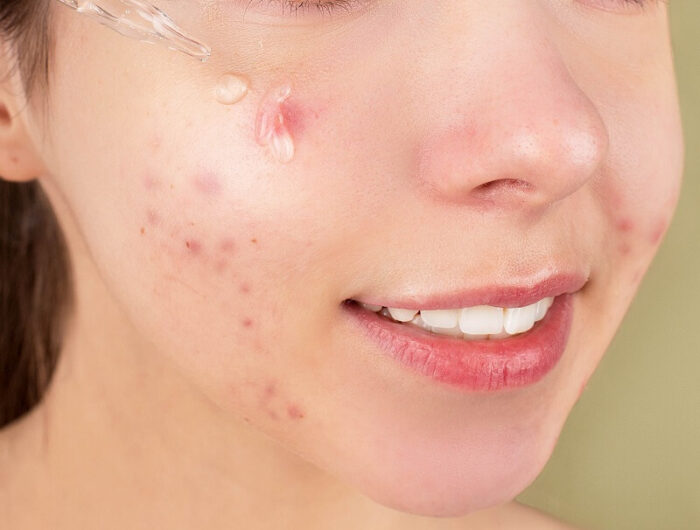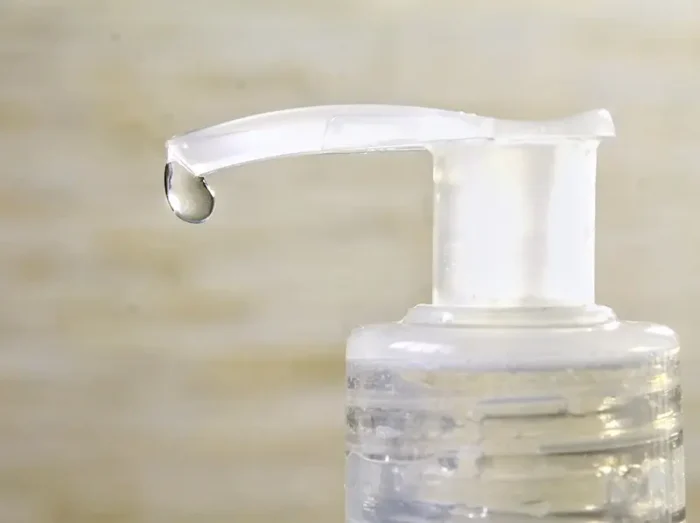No more are we feverishly trying to conceal dark patches, uneven skin, or hyperpigmentation. They don’t hurt us or undermine our self-worth, yet they are still a problem because they prevent us from having the glowing, attractive skin we eventually desire. What should we do, then, to treat hyperpigmentation at its source? We believe this post will help you.
Table of Contents
So What is Tyrosinase Inhibitor?
But first, what brings on hyperpigmentation?
Melanin build-up results in hyperpigmentation, which darkens certain areas of the skin. Inflammation-induced skin cell damage from acne, burns, etc. Leads to excessive melanin synthesis.
Now, how can we remove these troublesome spots and even our skin?
Time for a short biology lesson!
We are all familiar with the skin pigment known as melanin, which gives our skin, hair, and eyes their colors. In fact, melanocytes, specialized skin cells, are the ones that synthesize melanin.
Consequently, darker skin results from having more melanin, and lighter skin, because from less melanin.
Who decides how much melanin will be made? Your Genes!
Therefore, don’t just apply a boatload of melanin inhibitors in the hopes of permanently lightening your skin. However, there are now several substances we can use to even out that skin that’s uneven due to external factors.
The formation of melanin In skin cells is now aided by an enzyme known as tyrosinase. Inhibiting Tyrosinase will thereby diminish melanin synthesis, which will in turn lower melanin output. Tyrosinase Inhibitors are therefore substances that prevent or postpone the production of Tyrosinase, which in turn results in a reduction of the excessive production of melanin, giving you more even skin or lighter skin.
However, results don’t appear right away. It usually takes longer than a week or a month to see noticeable benefits, so be patient and consistent.
Why is that so? Simply because it takes our epidermis around a month to regenerate new skin cells.
We’ve really boiled down the entire melanogenesis bit here, but if you’re interested in learning more about what happens beneath the skin, do look it up.
Benefits of using Tyrosinase Inhibitors
- Lighter spots
- Reduced acne
- Skin lightened
- Even skin
- Helps with melasma
- Glowing skin
Side Effects
- Burning
- Itching
- Dryness
- Skin redness
- Dermatitis
- Increased chance of skin cancer.
- Less melanin means less defense against the sun’s rays. The likelihood of developing wrinkles, an uneven texture, and discoloration is thus increased.
Because some Tyrosinase Inhibitors have the potential to trigger allergies or other health problems, it’s crucial to use them sparingly and only in the prescribed amount.
Precautions
If you don’t use sunscreen every day, if your skin barrier is damaged, if you have sensitive skin, or if all of these apply to you, don’t even consider trying out these agents.
All of your efforts to combat pigmentation or lighten skin will be ineffective after prolonged sun exposure since sun exposure leads to the additional production of melanin.
Given that several of the following agents are potent, they will exacerbate skin if you do have a compromised barrier. Not at all what we want. Therefore, test these out after you’ve fixed your barriers.
Also, avoid using these agents if you have any skin inflammation, an injury, or hormonal problems that could potentially cause tyrosinase activity
It’s also crucial to utilize Tyrosinase Inhibitors at a recommended percentage for a set amount of time because they may lead to allergies or other health problems.
Moving forward, Let’s look at some of the Best Tyrosinase Inhibitors or anti-tanning agents
Best Tyrosinase Inhibitors Ingredients For Skin
1. Alpha Arbutin
This is among the most well-liked and efficient agents. It is a hydroquinone derivative that can be made from Bearberry, Paper Mulberry, Blueberry, or Cranberry. It prevents tyrosinase activity in the epidermis. Because its active ingredients are released slowly, it is milder than other lightning agents.
Preferable Concentration: ~5%
Side Effects: photosensitivity, mild acne, and redness.
Read: Best Alpha Arbutin Serum
2. Kojic Acid
Kojic acid is one of the popular Tyrosinase Inhibitors typically recommended as a skin-lightening agent by many dermatologists. It can be found in cleansers, creams, gels, and soaps. Kojic Acid quickly lessens tanning, pigmentation, and dark patches. It also has some anti-aging benefits for the skin. It treats fungal diseases because it has antifungal and antibacterial effects.
Preferable Concentration: 2%
Side Effects: Skin sensitivity and contact dermatitis.
Read: Best Kojic Acid Serum
3. Azelaic Acid
Azelaic Acid, which is found in wheat, barley, and rye naturally, is a fantastic treatment for Rosacea, Melasma, and Hyperpigmentation. When applied with a 20% Concentration, it even lightens skin. It also possesses antimicrobial and anti-inflammatory qualities, making it a popular choice for treating and preventing acne. Although most skin types can tolerate it, darker skin tones seem to favor it. According to studies, Azelaic Acid is one of the safest Tyrosinase Inhibitors that can be used by pregnant and lactating women for acne and hyperpigmentation.
Preferable Concentration: 20% or less
Side Effects: Stinging and redness.
Read: Best Azelaic Acid Products
4. L-Ascorbic Acid
L-Ascorbic Acid is a vitamin C derivative. An L-Ascorbic Acid-containing Vitamin C product is the most stable and active vitamin c variety that may permeate skin among the numerous varieties of vitamin C that are available. It has many advantages, including reducing hyperpigmentation, repairing skin, and enhancing glow. It also stops tyrosine from being oxidized into melanin because it is an antioxidant. Vitamin C promotes collagen synthesis having immense anti-aging benefits.
Preferable Concentration: 10 to 20%
Side Effects: Dryness
Read: Best Vitamin C Serums
5. Tranexamic Acid
Tranexamic Acid is an additional effective treatment since it evens out skin tones, treats melasma, and brightens the skin. It is a synthetic derivative of the amino acid and lysine. It inhibits melanin in the epidermis and lightens the skin. It’s also considered a relatively gentle agent.
Preferable Concentration: 2 to 5%
Side Effects: Swelling or redness
6. Retinoid
Retinoids are derivatives of vitamin A. They work wonders if you have aging skin and wish to boost skin cell turnover. They lighten skin by interfering with the formation of melanin, which reduces dark patches and tanning. Retinoids like Tretinoin are strictly to be bought and used with a medical prescription only. For over-the-counter products, one could try OTC Retinol Creams and Beginner Friendly Retinol Serums, following usage instructions and precautions.
Preferable Concentration: less than 1%
Side Effects: Skin thinning and peeling
Read: Best Retinol Serums
7. Ellagic Acids
Ellagic acids are tannin derivatives present in various fruits, macrophytes, and fungi. It works as a lightning agent. But more importantly, it’s a super strong antioxidant. It protects and adds brightens your skin.
Preferable Concentration: 5%
Side Effects: still undergoing research
8. Licorice
The Glycyrrhiza Glabra Linnem plant’s root is used to make licorice synthetically. On the skin, it is fairly gentle and calming. It has antioxidant and anti-inflammatory properties. If you’re just getting started with spot correction or are new to the actives world, this is a terrific choice.
Preferable Concentration: 10% or more
Side Effects: minor irritation
Read: Best Licorice Skincare Products
9. Turmeric
Turmeric, a spice, has an active ingredient called curcumin, a bioactive component that lessens the formation of melanin. Due to its anti-microbial and anti-inflammatory properties, it lessens breakouts, adds radiance, even helps with dark circles, and has a plethora of other advantages. Turmeric is widely used in ayurvedic skincare products for a very long time.
Preferable Concentration: 2mg
Side effects: Irritation
10. Hydroquinone
Reserving the best for the last, Hydroquinone is one of the Best Tryonaise Inhibitors. Due to its small size and strong tyrosinase inhibition properties, hydroquinone may permeate the skin quite well. Additionally, it is a skin-bleaching agent. It stops the production of melanin, which lightens the skin tone as a result.
But before you take it up, be aware of the aura of controversy that surrounds it. Hydroquinone can have reverse effects and can cause permanent pigmentation if used for longer periods. It’s an ingredient that should be used under medical supervision. So NEVER BUY over-the-counter Hydroquinone products without consulting a doctor.
Preferable Concentration: 2- 6%
Side Effects: Darkening from prolonged usage if used at high concentrations.
Thank you for reading this far; we hope you’ve discovered the tyrosinase inhibitor that’s right for you. Please leave any questions or concerns in the comments sections and we’ll reply right back.
References: https://www.ncbi.nlm.nih.gov/pmc/articles/PMC6010116/

Sejal Jain is a passionate beauty content creator at TheBeautyInsideout. She believes that skincare is not just a superficial thing but more like an expression of self-love and respect for your body and yourself.

